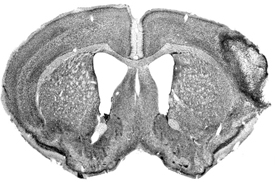Stroke Takes ‘Enormous Toll’ on Hollywood Stars
A study by researchers at the UCLA Stroke Center found that stroke and cardiovascular disease have exacted an enormous toll on Hollywood stars.
The findings were presented at the American Heart Association/American Stroke Association’s International Stroke Conference (ISC) in Los Angeles on Feb. 10.
“Since this is the first time the ISC is being held in Los Angeles, we thought it was an appropriate occasion to investigate the frequency and impact of stroke among leading Hollywood actors,” said Hannah Smith, a staff research associate at the UCLA Stroke Center. “By documenting the toll that stroke and myocardial infarction have exacted on stars like Kirk Douglas and Grace Kelly, we hope to illustrate the damage that cardiovascular disease can cause.” (more…)

